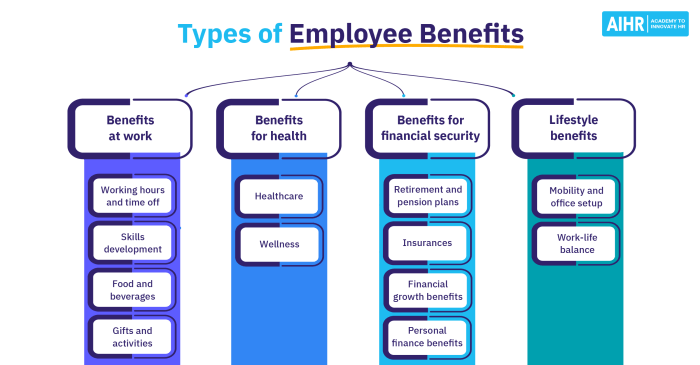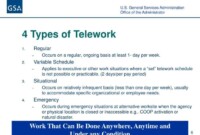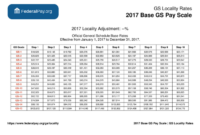GS Pay and Job Security: Pros and Cons, it’s a hot topic, especially for those considering a career in the federal government. You’ve got a steady paycheck and a secure gig, but is it worth it? We’ll dive into the perks and the potential pitfalls, giving you the inside scoop on what it’s really like to be a GS employee.
From salary scales and career progression to the coveted benefits package and work-life balance, we’ll break down the key aspects that matter most to you. Think of this as your ultimate guide to navigating the world of GS employment.
GS Pay
The General Schedule (GS) pay system is the primary pay structure for federal employees in the United States. It is a hierarchical system that uses grades and steps to determine an employee’s salary. The GS pay scale is a complex system with many factors influencing an employee’s salary, including their position, experience, and location.
Understanding the GS pay system is crucial for both current and prospective federal employees.
GS Pay Scale Structure
The GS pay scale is organized into 15 grades, each representing a different level of responsibility and expertise. Within each grade, there are 10 steps, with each step representing a year of experience or an increase in performance. The higher the grade and step, the higher the salary.
The GS pay scale is adjusted annually based on inflation and other economic factors.
The GS Pay Scale offers stability and a clear career path, but it’s important to understand the nuances of the system. For administrative assistants, navigating the pay scale can be especially crucial, as it directly impacts your earning potential.
To help you navigate the complexities, Navigating the GS Pay Scale 2024: A Comprehensive Guide for Administrative Assistants provides valuable insights. By understanding your options and making informed decisions, you can secure a rewarding career within the GS system.
Factors Influencing GS Pay Adjustments, GS Pay and Job Security: Pros and Cons
The GS pay scale is subject to adjustments based on several factors:
- Cost of Living Adjustments (COLA):The GS pay scale is adjusted annually to account for changes in the cost of living. This adjustment is based on the Consumer Price Index (CPI), which measures the average change in prices paid by urban consumers for a basket of consumer goods and services.
- Inflation:Inflation is a key factor influencing GS pay adjustments. When inflation rises, the purchasing power of wages decreases, and the GS pay scale is adjusted to compensate for this decline.
- Performance Evaluations:Employees who receive high performance ratings may be eligible for promotions, which result in higher pay. These evaluations are conducted annually, and the results are used to determine pay increases, bonuses, and other benefits.
GS Pay Compared to Other Pay Systems
GS pay is a significant component of the federal government’s compensation system. It is compared to other pay systems, including:
- Other Government Pay Systems:The federal government employs several pay systems, including the Senior Executive Service (SES) and the Foreign Service. The GS pay scale is generally considered to be the most common and standardized system, with other systems offering higher pay scales for specialized positions and senior leadership roles.
- Private Sector Salaries:The GS pay scale is often compared to private sector salaries in similar fields. In some cases, GS pay may be lower than private sector salaries, particularly for entry-level positions. However, federal employees often receive a wide range of benefits, including health insurance, retirement plans, and paid leave, which can offset lower salaries.
Job Security in the Federal Government

Job security in the federal government has historically been considered a significant benefit, attracting individuals seeking stable and long-term employment. However, recent years have witnessed shifts in the political and economic landscape, prompting a re-evaluation of the level of job security in the federal workforce.
Historical Overview of Job Security
Historically, federal government jobs were highly sought after due to their stability and benefits. This stability was rooted in the concept of a merit-based system, where employees were hired based on their qualifications and protected from political interference. The Civil Service Reform Act of 1978 further solidified this system, establishing the Office of Personnel Management (OPM) to oversee the hiring and promotion of federal employees.
The act also introduced the concept of “career civil service,” which offered long-term employment with job protection and opportunities for advancement based on performance.
Benefits and Perks of GS Employment
GS employees enjoy a comprehensive benefits package that extends beyond financial compensation. This package is designed to attract and retain qualified talent, ensuring a stable and motivated workforce within the federal government.
The GS Pay Scale offers stability and security, but navigating its complexities can be daunting. For IT professionals seeking to understand their earning potential and career trajectory, Navigating the GS Pay Scale 2024: A Comprehensive Guide for IT Professionals provides invaluable insights.
This resource empowers you to make informed decisions about your future, balancing the benefits of a structured pay system with the challenges of navigating its intricacies.
Healthcare Benefits
GS employees have access to a robust healthcare system through the Federal Employees Health Benefits Program (FEHB). This program offers a wide range of health insurance plans from different private insurance companies, providing employees with diverse options to meet their individual healthcare needs.
- Variety of Plans:FEHB offers a range of plans, including fee-for-service, health maintenance organizations (HMOs), preferred provider organizations (PPOs), and high-deductible health plans (HDHPs). This allows employees to choose the plan that best suits their budget and healthcare preferences.
- Government Subsidies:The government contributes significantly to the cost of FEHB premiums, making health insurance more affordable for GS employees. This contribution varies based on the chosen plan and employee salary.
- Pre-Tax Deductions:Employees can deduct their health insurance premiums from their pre-tax income, further reducing their tax liability and increasing their disposable income.
Retirement Benefits
GS employees are eligible for the Federal Employees Retirement System (FERS), a defined-benefit pension plan that provides a guaranteed income stream during retirement.
- Pension:FERS offers a pension based on years of service and average salary. This provides a predictable income stream for retirees, ensuring financial security in their later years.
- Thrift Savings Plan (TSP):In addition to the pension, GS employees can participate in the Thrift Savings Plan (TSP), a defined-contribution retirement savings plan similar to a 401(k). This allows employees to contribute a portion of their salary to a tax-deferred account, which they can invest in various options, including mutual funds and index funds.
The GS pay scale offers a sense of stability, but navigating its intricacies can feel like a puzzle. Understanding how it works, particularly for human resources professionals, is key to finding a fulfilling career. Check out GS Pay Scale 2024 for Human Resources: A Comprehensive Guide to demystify the system.
With careful planning and a grasp of the details, you can unlock the potential for a secure and rewarding future within the GS system.
The government also contributes to the TSP, matching a percentage of employee contributions.
- Early Retirement:Under certain conditions, GS employees can retire early with a reduced pension, providing flexibility for those seeking to transition to retirement before the traditional age.
Leave Benefits
GS employees enjoy generous leave benefits, designed to promote work-life balance and personal well-being.
- Annual Leave:GS employees accrue annual leave, which they can use for vacations, personal appointments, or other purposes. The amount of annual leave earned increases with years of service.
- Sick Leave:GS employees are eligible for sick leave, which can be used for illness, medical appointments, or caring for family members.
- Family and Medical Leave:GS employees are eligible for up to 12 weeks of unpaid family and medical leave, which can be used for childbirth, adoption, caring for a sick family member, or a serious medical condition.
Unique Benefits and Perks
Beyond the standard benefits package, GS employees enjoy unique perks exclusive to federal employment.
- Federal Holidays:GS employees receive 10 paid federal holidays each year, providing additional time for rest and relaxation. These holidays include New Year’s Day, Memorial Day, Independence Day, Labor Day, Thanksgiving, and Christmas.
- Government-Sponsored Training:The federal government offers numerous training programs and professional development opportunities for GS employees, supporting career advancement and skill enhancement.
- Job Security:GS employees enjoy a high level of job security, with a strong emphasis on merit-based hiring and promotion practices. This provides stability and peace of mind, reducing the risk of job loss due to economic downturns or company restructuring.
Career Progression and Advancement: GS Pay And Job Security: Pros And Cons
The GS pay system offers a structured framework for career advancement within the federal government. This system provides employees with clear pathways to move up the career ladder, based on merit, performance, and experience.
Typical Career Paths and Advancement Opportunities
The GS pay system is designed to provide a framework for employees to progress through a series of steps and grades, increasing their pay and responsibilities as they gain experience and expertise. Here are some typical career paths within the GS system:
- Horizontal Movement:This involves moving to a different position within the same grade level, often in a different department or agency. This can allow employees to gain new skills and experience in a different area of work.
- Vertical Movement:This involves moving up to a higher grade level within the same occupational series. Promotions within the GS system are typically based on merit, performance, and experience. Employees often need to meet certain performance standards and complete training requirements before being eligible for a promotion.
- Lateral Movement:This involves moving to a different occupational series at the same grade level. This can be a way for employees to explore new career paths or to take advantage of opportunities in other areas of the federal government.
Training and Development Programs Available to GS Employees
The federal government offers a wide range of training and development programs to help GS employees advance their careers. These programs can help employees develop new skills, improve their knowledge, and prepare for promotions. Some examples include:
- Formal Training Programs:The Office of Personnel Management (OPM) offers a variety of formal training programs, such as the Federal Executive Institute (FEI) and the Senior Executive Service (SES) Candidate Development Program.
- On-the-Job Training:This is a common form of training in the federal government, where employees learn new skills and knowledge while performing their job duties. Many agencies also offer mentoring programs, where experienced employees provide guidance and support to newer employees.
- Tuition Reimbursement Programs:Many federal agencies offer tuition reimbursement programs to encourage employees to pursue higher education. This can be a valuable benefit for employees who want to advance their careers or change their career paths.
Factors Contributing to Career Advancement within the Federal Government
Several factors contribute to career advancement within the federal government. These include:
- Performance:Employees are expected to meet performance standards and consistently perform at a high level. Strong performance evaluations are essential for promotions and advancement.
- Experience:Gaining experience in a specific field or area of expertise is crucial for career progression. The GS system often requires employees to have a certain number of years of experience before being eligible for a promotion.
- Education:Higher education can be beneficial for career advancement, especially in specialized fields. Many agencies encourage employees to pursue advanced degrees and offer tuition reimbursement programs.
- Networking:Building relationships with colleagues, supervisors, and other professionals in the field can open doors to opportunities and help employees advance their careers.
- Leadership Skills:The ability to lead and manage others is highly valued in the federal government. Employees who demonstrate strong leadership skills are often considered for promotions and advancement opportunities.
Work-Life Balance and Culture
The work-life balance and the culture of federal agencies are significant aspects to consider when evaluating GS employment. While the federal government offers a comprehensive benefits package and job security, it’s crucial to understand the potential impact on personal life and career goals.
Work-Life Balance in GS Positions
The work-life balance in GS positions can vary depending on the specific agency, department, and position. However, compared to other employment sectors, GS positions generally offer a more structured work environment with defined work hours and a strong emphasis on work-life balance.
The federal government is committed to providing employees with a reasonable work schedule that allows them to maintain a healthy balance between their professional and personal lives.
- Defined Work Hours:Most GS positions have a standard 40-hour workweek, with clear expectations regarding work hours and overtime. This provides employees with predictable schedules and allows for better planning of personal time.
- Paid Leave:Federal employees are entitled to a generous amount of paid leave, including vacation, sick leave, and holidays. This allows for time off for personal needs and family commitments.
- Telework Opportunities:Many federal agencies offer telework options, allowing employees to work remotely from home. This flexibility can significantly improve work-life balance by reducing commuting time and increasing personal time.
- Family-Friendly Policies:The federal government provides family-friendly policies, such as parental leave, adoption assistance, and flexible work arrangements, to support employees with family responsibilities.
Organizational Culture and Values in Federal Agencies
The organizational culture and values of federal agencies can vary widely, influenced by factors such as agency mission, leadership style, and employee demographics. However, some common characteristics of federal agency culture include:
- Public Service Ethos:Federal employees are expected to uphold a strong public service ethos, prioritizing the needs of the public and working towards the betterment of society. This can create a sense of purpose and fulfillment for employees.
- Bureaucratic Structure:Federal agencies are typically characterized by a hierarchical structure with established rules and procedures. This can provide stability and clarity but may also lead to bureaucracy and slow decision-making.
- Diversity and Inclusion:The federal government is committed to diversity and inclusion, fostering a workplace where individuals from all backgrounds feel valued and respected. This can create a more inclusive and enriching work environment.
- Work-Life Balance Emphasis:Federal agencies generally prioritize work-life balance, offering employees a range of benefits and policies to support their well-being. This can create a more positive and sustainable work environment.
Impact on Personal Life and Career Goals
GS employment can have both positive and negative impacts on personal life and career goals. The following examples illustrate these potential effects:
- Positive Impacts:
- Job Security:The stability and job security offered by GS positions can provide peace of mind and allow individuals to focus on personal goals without worrying about losing their jobs.
- Benefits Package:The comprehensive benefits package offered by the federal government, including health insurance, retirement plans, and paid leave, can significantly enhance personal well-being and financial security.
- Career Advancement Opportunities:GS positions offer structured career paths and opportunities for advancement, allowing individuals to develop their skills and progress within the federal government.
- Negative Impacts:
- Bureaucracy and Slow Decision-Making:The bureaucratic nature of federal agencies can sometimes lead to slow decision-making and a lack of agility, which may hinder career progression or limit opportunities for innovation.
- Limited Salary Growth:GS pay scales are often lower than those in the private sector, particularly at entry-level positions. This can limit financial growth potential and may not meet the needs of individuals with high earning aspirations.
- Work-Life Balance Challenges:While the federal government prioritizes work-life balance, some GS positions may require long hours or frequent travel, potentially impacting personal time and commitments.
Outcome Summary
So, is GS pay and job security the right fit for you? It depends! Weighing the pros and cons is crucial, and considering your personal goals and priorities is key. Ultimately, the decision is yours. But hey, at least now you’ve got the info to make a smart move.


